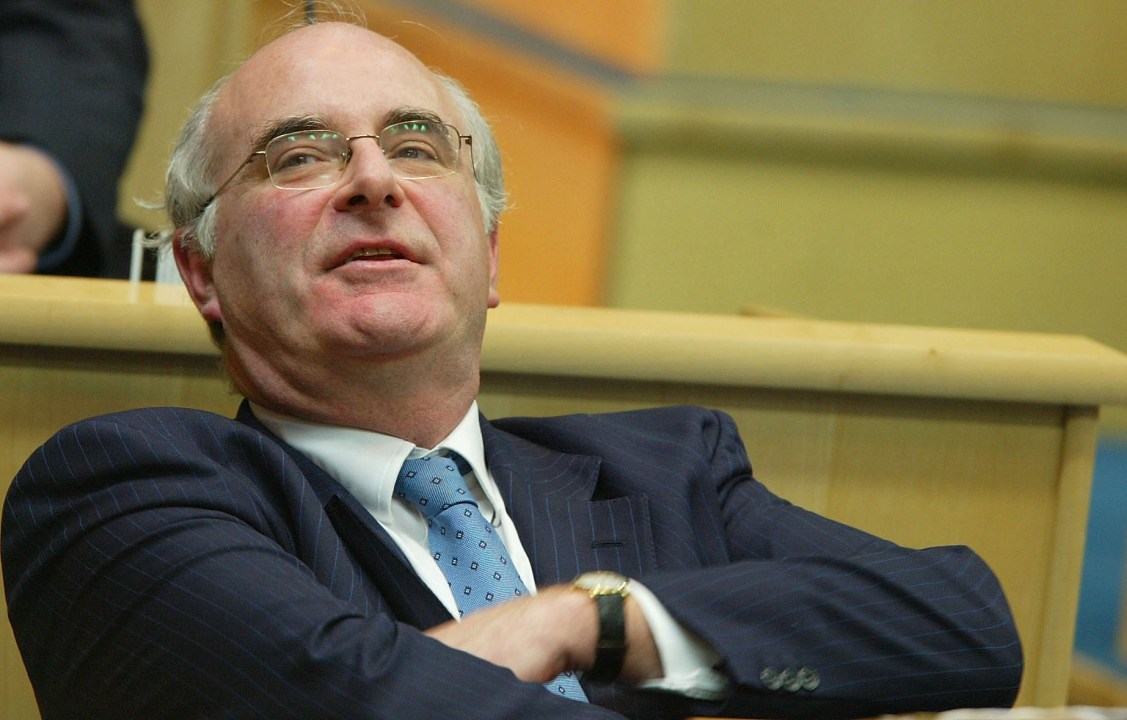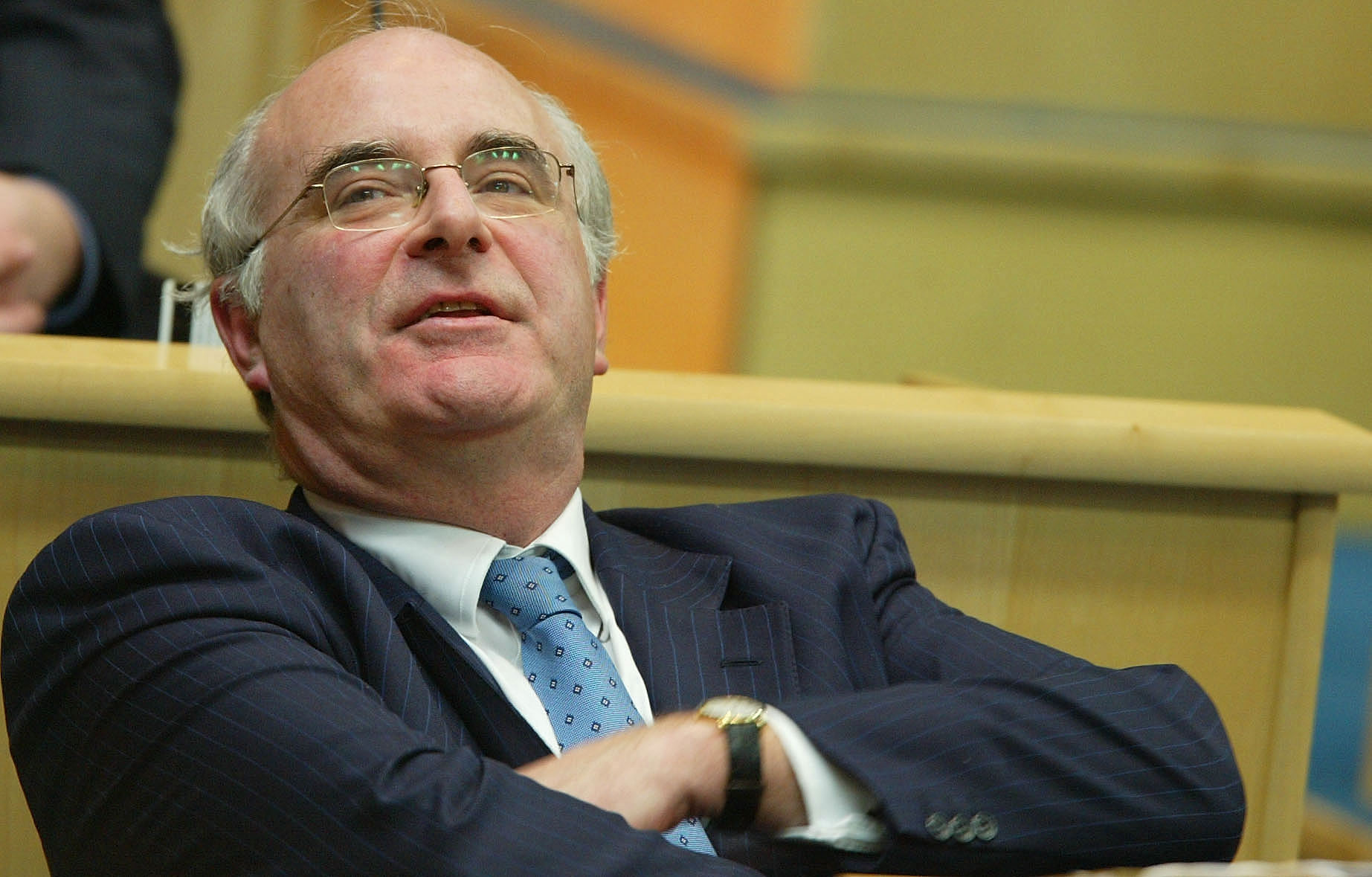David McLetchie, who died this week aged only 61, was a politician who, in style and manner, rebuked those cynics who presume – lazily – that politicians go into politics to advance causes that have nothing to do with the public good.
This may seem ironic given that his own stewardship of the Scottish Conservative and Unionist party was abruptly curtailed by a row over the misuse of parliamentary taxi warrants but there you have it. That “scandal” was, as Bill Jamieson reminds us today, typical of life at Holyrood: a micro-tempest in an espresso cup. Like the “scandals” that brought down Henry McLeish and Wendy Alexander it now seems embarrassingly trivial. Officegate, Taxigate, Giftgate: never before had this tedious suffix been so abused. (Of course, McLetchie played a leading role in defenestrating poor old McLeish. But there you have it again.)
Be that as it may, no-one assuming the leadership of the Scottish Tories in 1998 could be accused of opting for an easy life or one liable to be garlanded with praise or victories. At the time, you will recall, the Tories had been wiped from the map. Scottish constituencies sent 72 MPs to Westminster and none of them, after the 1997 election, were Conservatives.
McLetchie’s task, then, was to build something from the ruins of this destruction. He did better than might have been expected. Though he had served the party in a number of roles, he was not a career politician. He was instead the very model of an Edinburgh solicitor. If that suggests a certain lack of panache, it might also be observed that the Scottish Tories needed decency and gravitas more than they required flair or excitement.
The country had, after all, rejected the party in brutal fashion. McLetchie’s task was, if you will, to draw a line under the party’s previous opposition to devolution and make some kind of a peace with the reality of a new Scottish parliament. That necessarily meant a period of some silent reflection was required. Reflection and even, also, some penance.
Certainly the Tories would do their best to win votes and seats in the new parliament but neither the public nor the media was likely to be impressed or convinced by any Damascene conversion to Holyrood’s virtues. This too made it difficult for the Tories to benefit from public dissatisfaction with the new parliament’s underwhelming performance. On the one hand the old guard on the anti-devolutionary right could claim, not without some justification, they had warned the parliament would likely prove a disappointment; on the other, the leadership had to recognise that whatever Holyrood’s inadequacies it wasn’t going to disappear.
Truth be told there is still a significant body of Tory opinion in Scotland that regrets the parliament’s establishment. This still, nearly 15 years later, complicates the Tory leader’s position. And yet, of course, without a parliament in Edinburgh the Conservatives would have almost no significant representation in Scotland at all. Holyrood has provided a lifeline even if some Tories would rather drown than take advantage of it.
A rugby team of MSPs in Edinburgh is a far cry from the halcyon days of 1955 but it is better than nothing. Under McLetchie and Annabel Goldie, his successor, the Tories pledged to make Holyrood “work” and even, on occasion, to “improve” it. But there was always a hint of apology in these statements, a suggestion that this time the Tories penitent conversion should be taken seriously. Please, please, please give us the benefit of the doubt. Please give us another chance.
Neither McLetchie nor Goldie, for all their admirable and evident decency, were ever quite able to move beyond this position of palpable weakness. They held poor cards and could be said to have played them modestly well. That’s something but, in the end, it was not quite enough.
It meant Scottish Conservatism was invariably hair-shirted and timorous. There were, as I say, good reasons for that but eventually it played into enemy hands. The failure to make a robust case for Toryism gave Scots naturally sympathetic to right-of-centre arguments little reason to flock to the Tory banner. Worse still, it implicitly accepted that there was something disreputable, even dishonourable, about Conservatism north of the Tweed. The left continued to portray Conservatism as an alien inclination that had no place in Scotland; the Tories’ feebleness sometimes suggested the party had internalised this criticism and concluded that there might be some truth to it. And this in turn naturally made recovery more difficult.
And behind all this lurked the still-unresolved constitutional question. When it looked as though the SNP might win the 2007 Scottish election some last-ditch Tory Unionists argued that Tories should vote Labour the better to “save the Union”. A counsel of despair if ever there was one! And, by the by, another admission of Conservatism’s apparent obsolescence. Better that Scotland be misgoverned than that the people be trusted to recognise the benefits of Union for themselves.
No wonder morale, membership and finances all slumped. What was the point? Even now, under the leadership of Ruth Davidson, the party remains timid. It remains to be seen what her constitutional commission (led by Lord Strathclyde) produces but few people, I think, expect to be pleasantly surprised by its recommendations. It seems unlikely to accept that saving right-of-centre Unionism may require risking the Union.
Among the sad consequences of Tory timidity in Scotland is that there was an opportunity to lead the debate if only internal Tory contradictions could have been resolved. The drive to fiscal autonomy – or Real Home Rule – should have been a Tory cause. Moreover, there was ample room for the Conservatives to distance themselves from the suffocating – and often inadequate – Scottish soft-left consensus and offer some alternative.
By and large, however, this has not happened. Nor need it have required a tack to the right; just standing still would have opened water between the Tories and the left. Instead the Tories have often seemed to meekly shadow the balance of power in Edinburgh. If David Cameron’s Tories south of the border needed to show they were no longer the party of Angry Men, their counterparts in Scotland needed to be angrier than the state of resigned fatalism they instead exhibited.
The absence of any realistic prospect of power in Edinburgh could have been an opportunity. Indeed it remains an opportunity ungrasped. It could have liberated the Scottish Tories, instead it seems to have cowed them. There are times when it is useful to lay the foundations for winning arguments in the future. This was the Tories’ opportunity. They have not taken it.
David McLetchie’s leadership offered solidity in fraught times. He performed those duties capably and decently. It was, it can fairly be argued, what the party needed then. But this is not then and now the party requires something different. It needs leadership. It needs ideas. It needs to be bolder. It needs to fight – not on the constitution but on education and health and tax – and it needs to be angrier.
Scotland remains, in many respects, a small-c conservative country. Which means, just perhaps, that it could do with a large-C Conservative party determined to offer an alternative and not just an apologetic pale-blue echo. When, or if, they do they may be surprised by how many people are prepared to welcome them back to the fight.








Comments